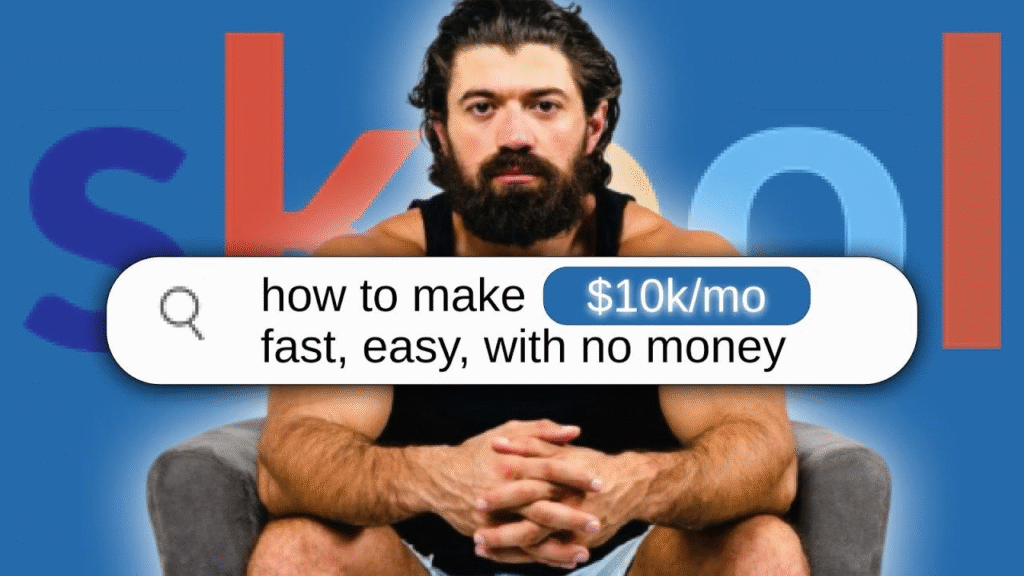
There are a lot of community platforms out there.
They just give you the basics!
They’re like glorified forums.
But when you’re building a community, you need more.
You need a platform that focuses on engagement and has gamification features
You need a really good mobile app.
That’s where Skool comes in. 🙂
In this blog post, I will be reviewing Skool.
Skool was founded by Sam Ovens in 2019.
Before it, he founded consulting.com to help consultants and coaches up their game.
However, Sam noticed a lack of solid community-building tools in the market. There were Facebook groups and other platforms like Kajabi at that time, but they were not focused on community building.
Now, Sam is full-time into Skool!
I was truly prompted to use Skool when I saw their really good exponential growth rate, which even surpassed more established tools like Circle.

Also recently, Alex Hormozi invested in Skool, stating it was the biggest investment of his life.
Upon closer inspection of the platform, I noticed Sam Ovens implementingnumerous growth flywheels and other mental models, such asnetwork effects and feedback loops, to elevate the platform to the next level.
With online community-centric learningbecoming the next big thingand academic education declining, I’ve developed a lot of conviction in the platform due to the direction and positioning of the Skool.

👍 What do I like about Skool?
- Intuitive UI/UX: You witness higher engagement in the community due to their real intuitive user interface. Members feel right at home!
- Discover feature: Skool comes with a “Community discovery” feature, similar to Facebook’s search function, that helps you discover communities and generate more organic leads for your own community. Personally, I found really good communities to join with this!
- Gamification: It provides members’ engagement-boosting features like points, levels, leaderboards, streaks, etc – and showcases them on member profiles.
- Courses: It comes with course creation features with drip functionality. You can even unlock the courses based on levels members unlock
- Calendar: It has calendar feature enables you to schedule events, and ecen make certain events only accessible to members on certain levels.
- Mobile apps: Skool offers feature-packed iOS and Android apps for learning and interaction on-the-go.
👎 What we don’t like about Skool?
- Missing marketing features: Skool lacks proper marketing features such as checkout customization, ability to add order bumps, and upsells.
- No built-in live stream: Requires YouTube Live or Zoom for live events.
- No automation: Lacks automation workflows for triggers and actions inside community.
- Limited integrations: Skool doesn’t natively integrate with popular platforms, you need to rely on Zapier.
Upfront bottom line✨:
Let me give you the verdict of this review.
I firmly believe in the potential of Skool, especially since it was created by Sam Ovens. His focus is not just on the number of features, but on improving community engagement rates and driving success for product users. In fact so far, this is fueling the product’s growth loop!
I firmly believe Skool is the “ClickFunnels moment” for online communities.
But.
It currently has limitations when it comes to course creation, automation, integrations, and overall depth of features, it’s important to remember that it’s still under active development.
Despite these gaps, you can consider using a Skool for your community needs.
However, if you are looking for more evolved platforms, you may need to consider Circle (from the founders of Teachable) or Kajabi communities.
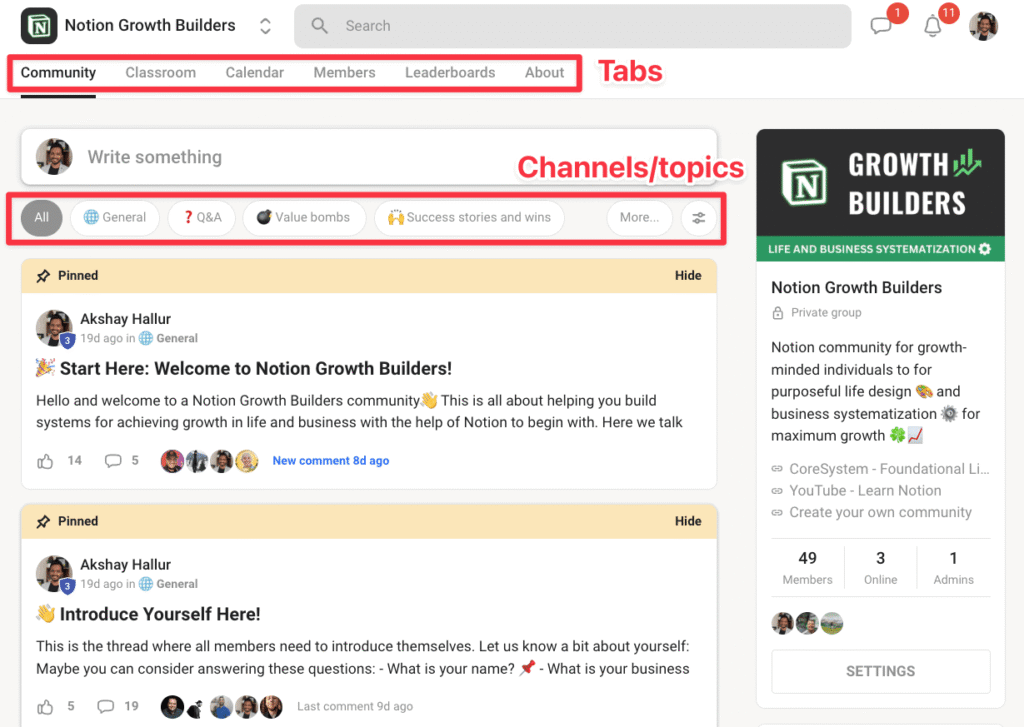
There are 6 different tabs available:
- Community: Engage with members.
- Classroom: Access all your courses.
- Calendar: Stay updated on upcoming events or webinars.
- Directory: Find and connect with other community members.
- Leaderboards: Showcases highly engaging members.
- About: Provides a brief highlight about the community you are browsing.
These tabs are themed around the five essential aspects of every community: engagement, learning, events, connect, and gamification.
Additionally, discussions within a community can be organized into different topics or channels.
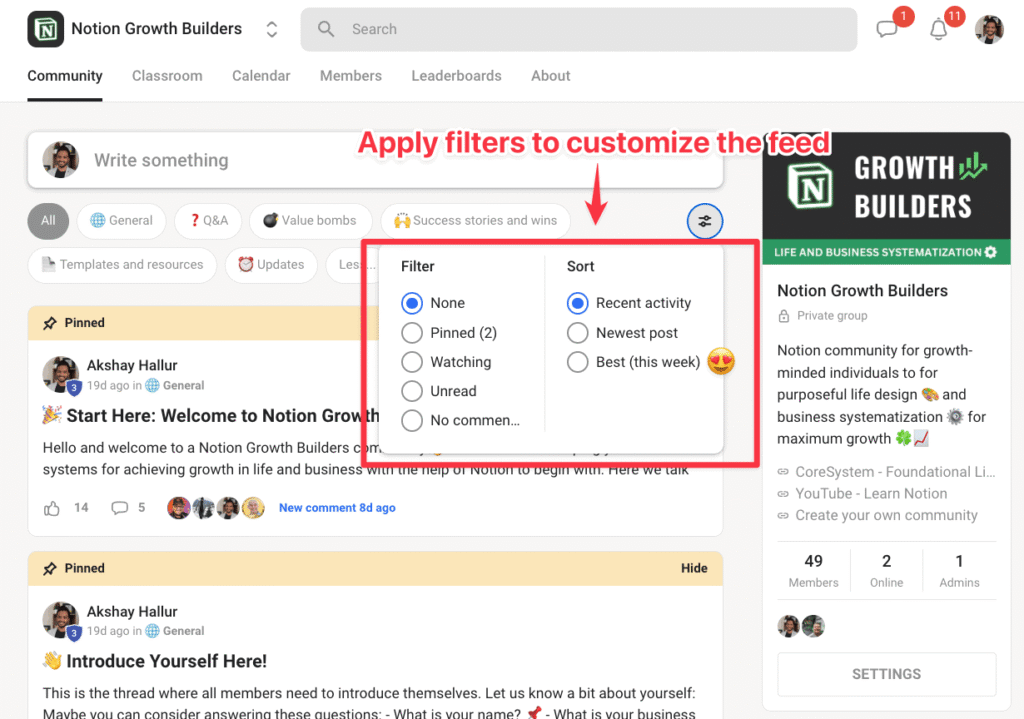
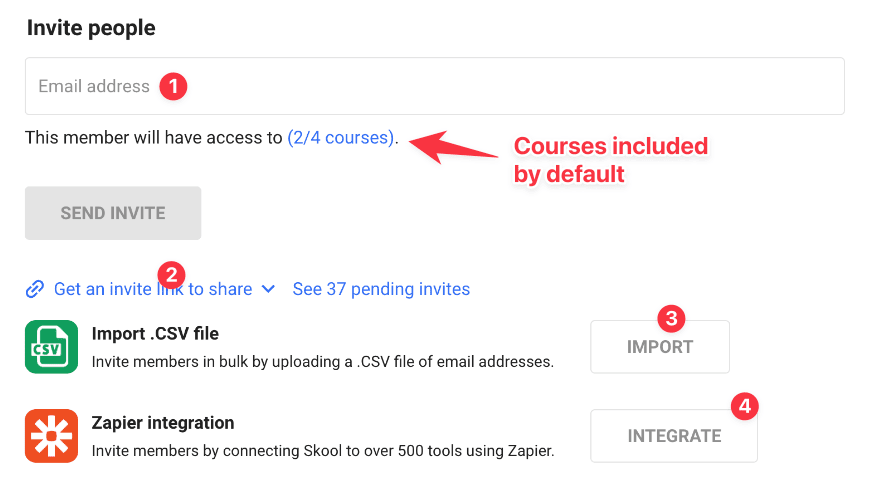
When creating a community or group in Skool, there are 4 ways to invite people.
- Invite via email (best way to import course-specific students): Manually enroll members with their email addresses to certain courses.
- Invitation link: Share an invitation link for easy community access.
- Import CSV: Import member lists from other platforms using CSV files.
- Zapier integration: Automate member addition using Zapier. Say when people buy your product on ThriveCart, auto-send them invite!
Also based on various conditions, you can provide access to the training courses.
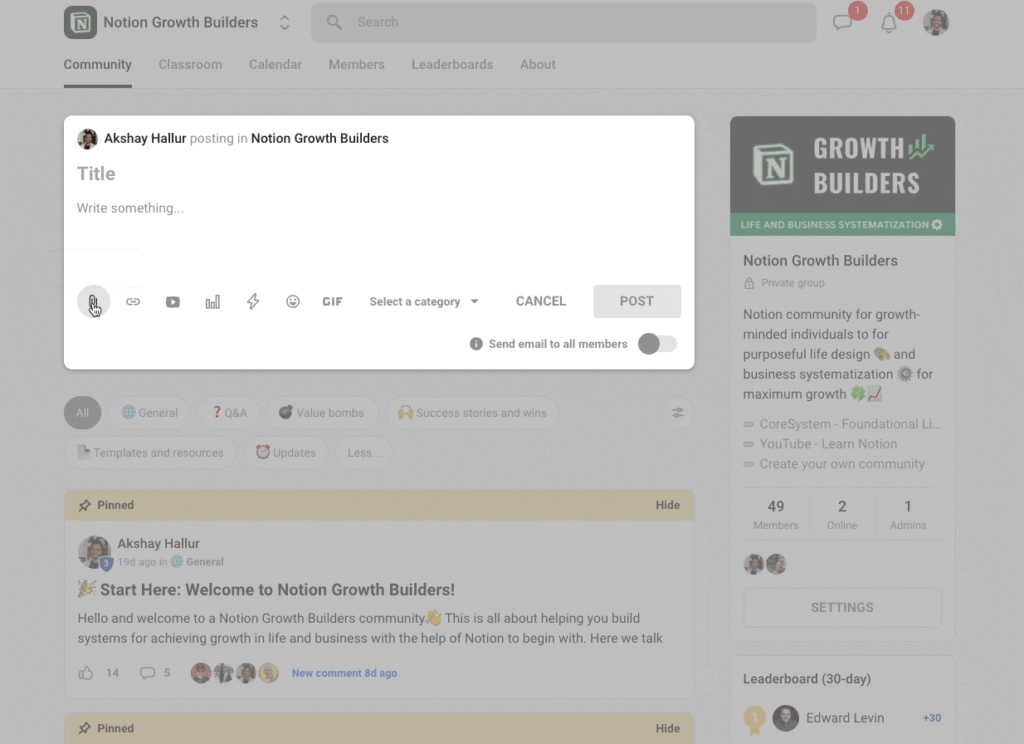
Skool is a gamification-centric community platform. That means in Skool, the community members will be unlocking various perks as they engage more in their community.
You will be levelling up as you gain more points in the community.
So how you gain points?
It’s through interaction with other members’ posts.
1 like = 1 point.
In summary, the more you add value within the community, you will level up.
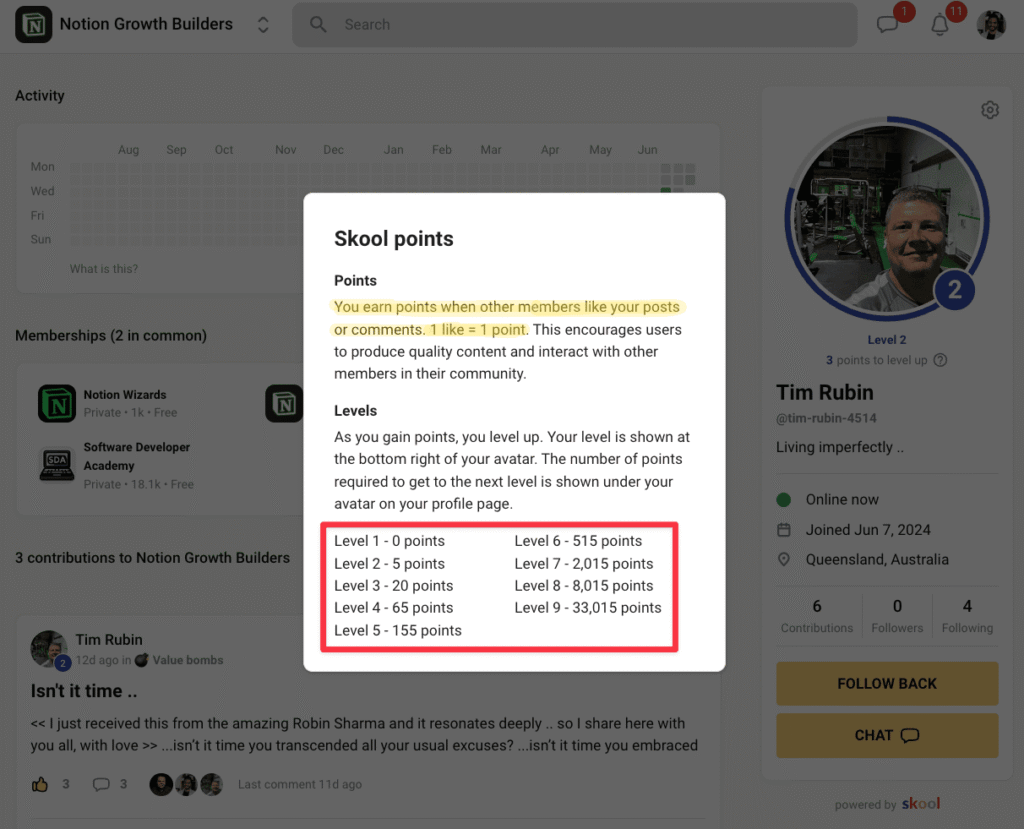
You can also set the courses or products that your community members can unlock as they further engage in the community.
Skool offers the best in class gamification features.
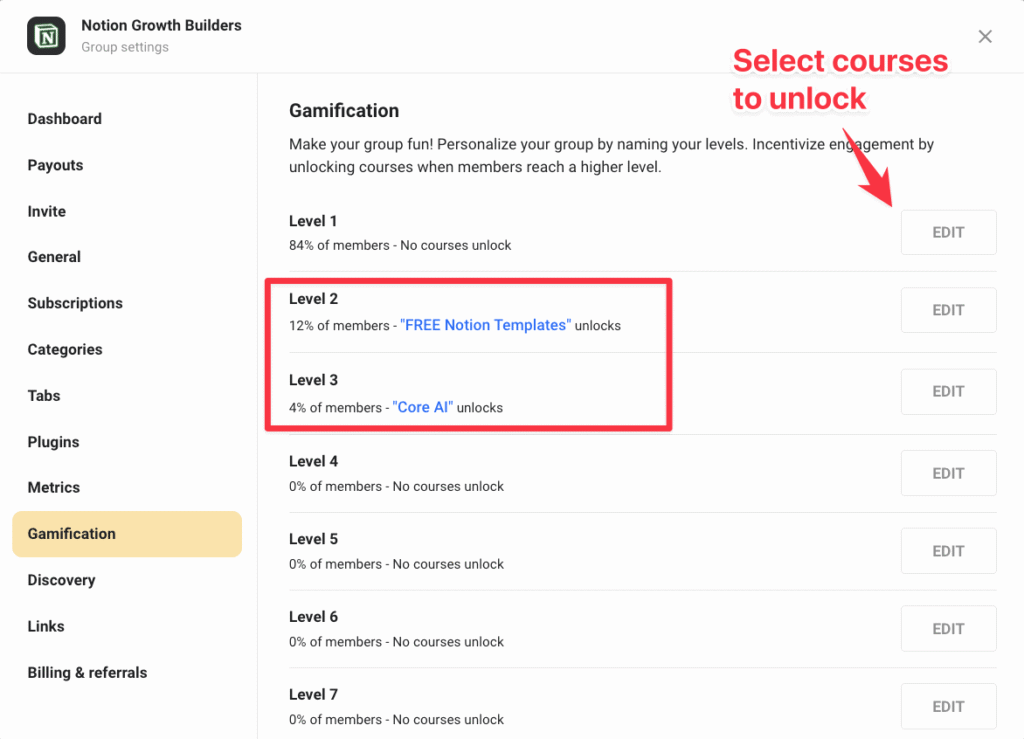
You can see when people reach level 2 and level 3 they will be unlocked in many more products.
Let’s consider the “Synthesizer School” community.
For members at levels 3 & 4, they are offering free weekly accountability calls and Synthesizer profile templates.
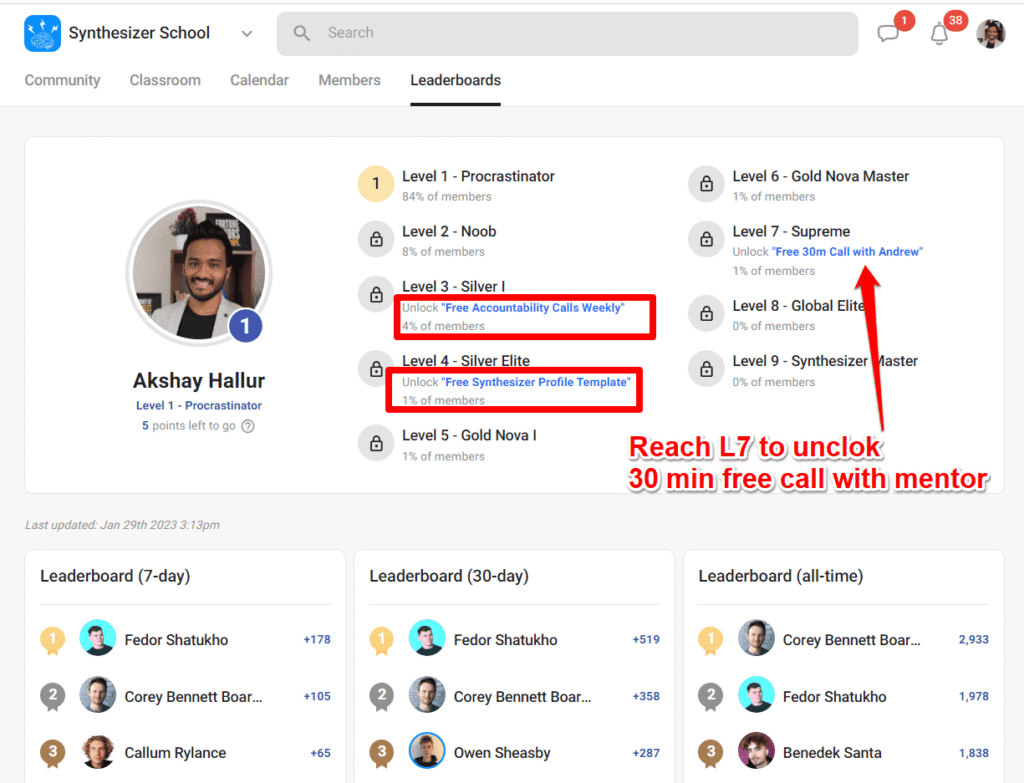
Skool is one of the very few platforms that provide rich member profiles.
It feels like you are viewing an Instagram profile.
You will get data like:
- Member level.
- When they joined.
- Last active time.
- Course completion percentage.
- The number of contributions, followers, and following (with list).
With this, you will already have a lot of context when initiating conversations with any of the community members. Really useful!
And also Skool does the job of community engagement, more habit forming.
Streaks!
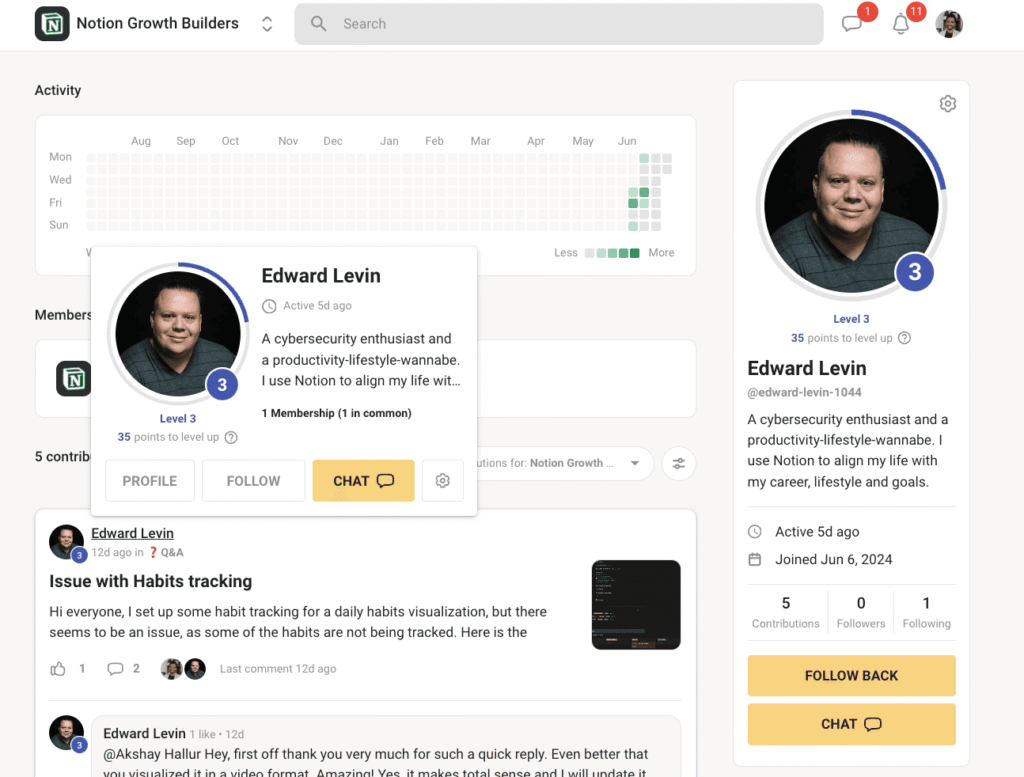
There is a unique daily activity chart available in Skool
The activities it track include:
- Post likes
- Posts published
- Comments and
- Voting on polls
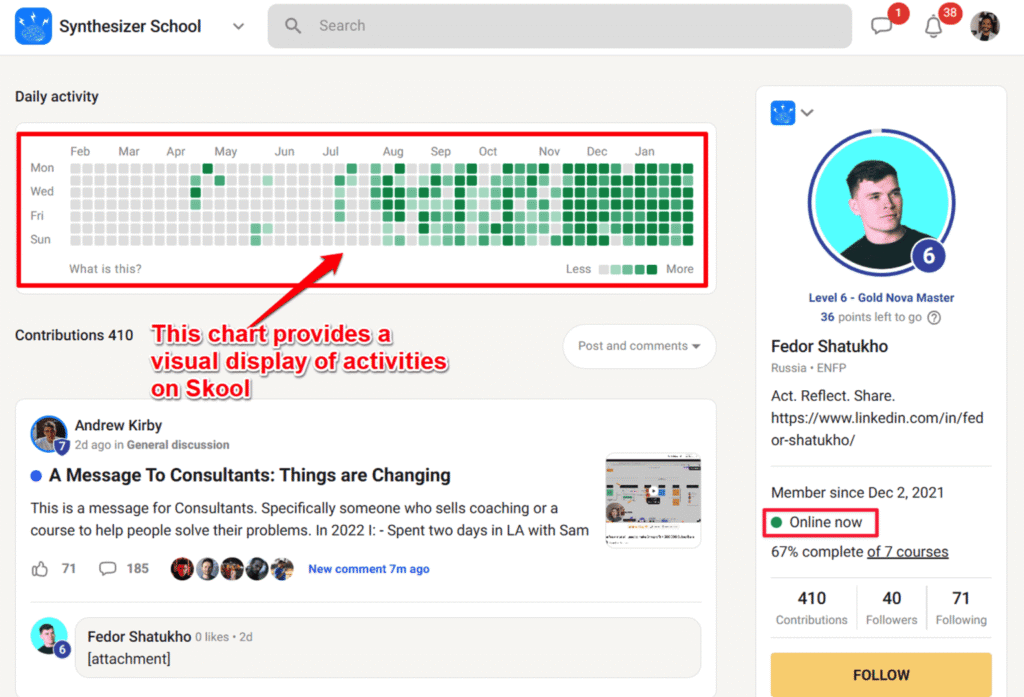
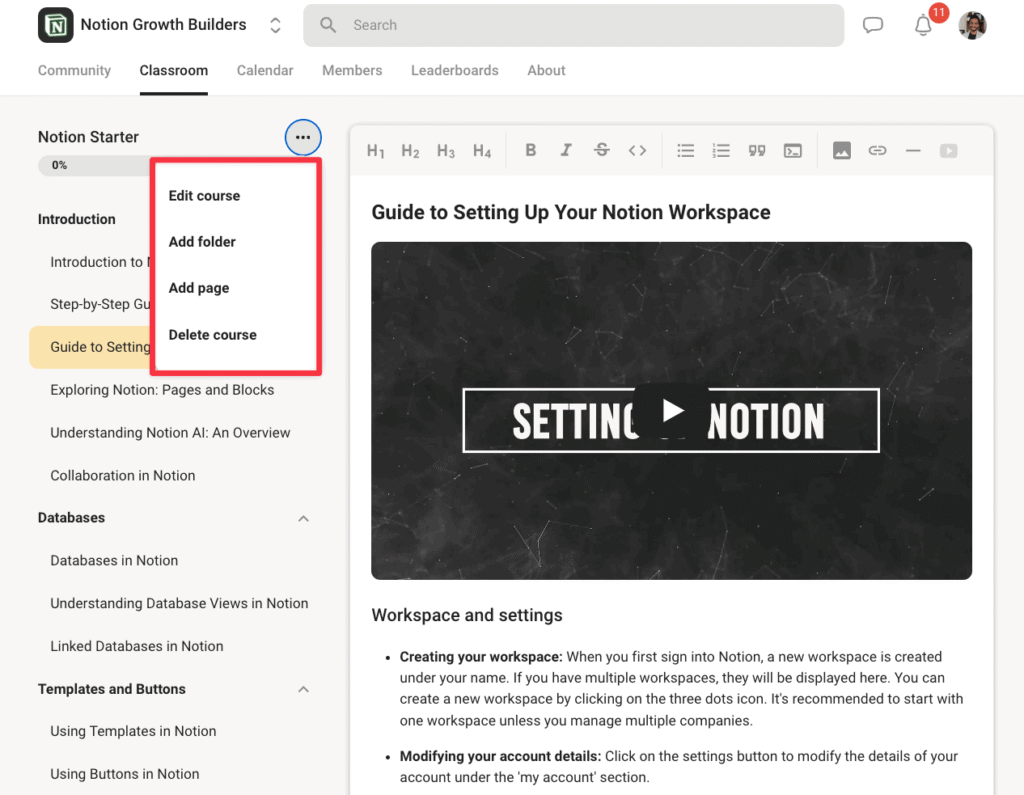
When creating a course, you can structure the content by folders and different pages.
Skool refers to the different lessons inside the folders as ‘pages’.
Why didn’t they name lessons as lessons?
This tells me one thing.
They are looking to implement not only lesson videos, but various interactive building blocks inside the “pages”.
But as of now, you end up using pages for displaying lesson videos.
As you may have guessed, currently, the Skool does not support native video hosting abilities. But it’s in their roadmap. Keep an eye 👀
As of now you can embed videos from popular video hosting solutions.
For each of the pages, you can add descriptions, action items (for proactive learning), lesson transcripts, and also start or pin/map a lesson-specific discussion thread to a course’s lesson page.
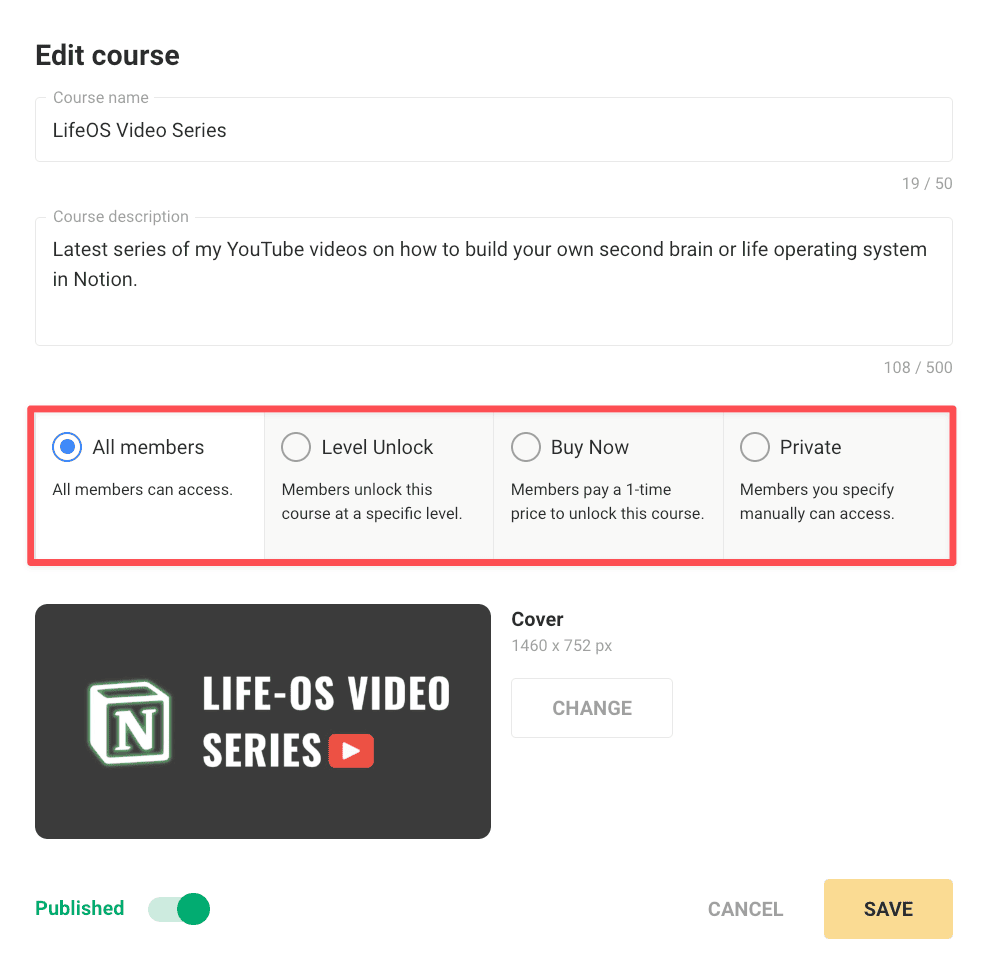
Here are the different course access levels in Skool:
- All Members: When people join the community, they get instant access to basic courses (like my Notion Starter course and LifeOS video series)
- Level-Based: Some content (like free templates and Core AI prompt library) requires members to interact and level up in the community to unlock
- Buy Now: Members can purchase direct access to specific courses within the community platform
- Private: Restricted access for courses sold through external platforms like ThriveCart, requiring manual or automated enrollment
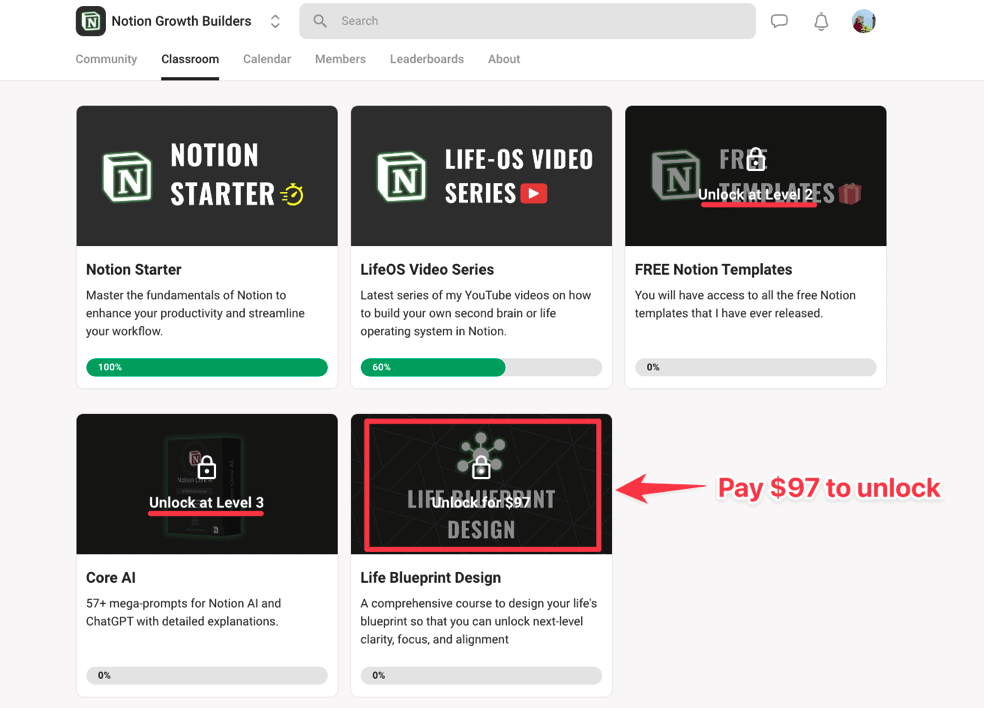
Also, as students go through the training course and mark the lessons as done, the course completion percentage progress bar will progress.
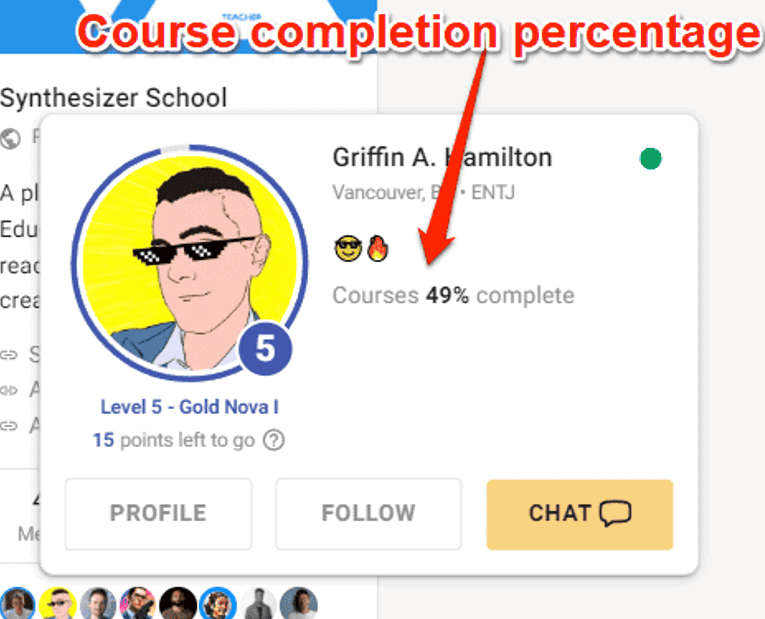
The same course completion percentage is shown on profiles, promoting transparency and accountability.
To sum it up:
Here are the key features of Skool courses:
- Structured course creation with folders and pages
- Flexible course access settings (all members, level-based, or purchase-based)
- Course completion tracking with progress display on user profiles
- Integration of discussion threads with specific lessons
- Clean, intuitive course player interface for students
👉 Other than these features, Skool doesn’t come with other course compliance, assessment, and course certification features.
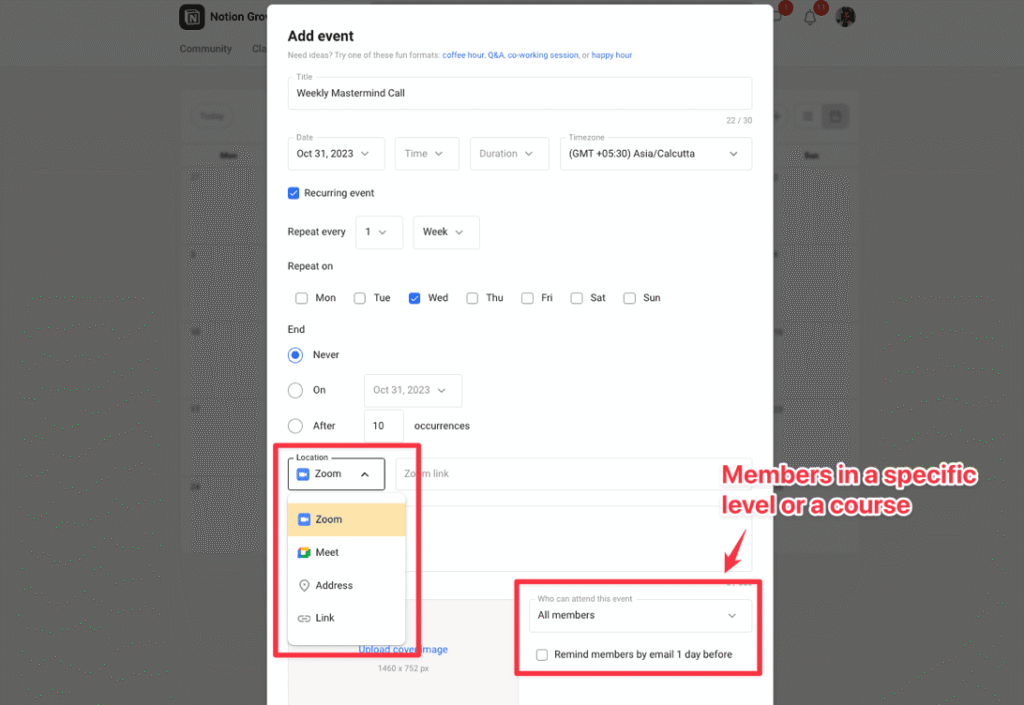
As shown in the screenshot above, I have set up a recurring event for our weekly Mastermind call every Wednesday.
👉 Also, you have the option to specify who can attend this event, such as members at a specific level or those enrolled in a particular course.
However, please note that Skool does not have native live streaming capabilities.
Therefore, you need to utilize either Zoom or Google Meet integrations.
Here’s the good thing:
The founder is a big believer in live events in the community to build that rapport and communicate the mission with the community members. So, we can expect some big updates in this regard.
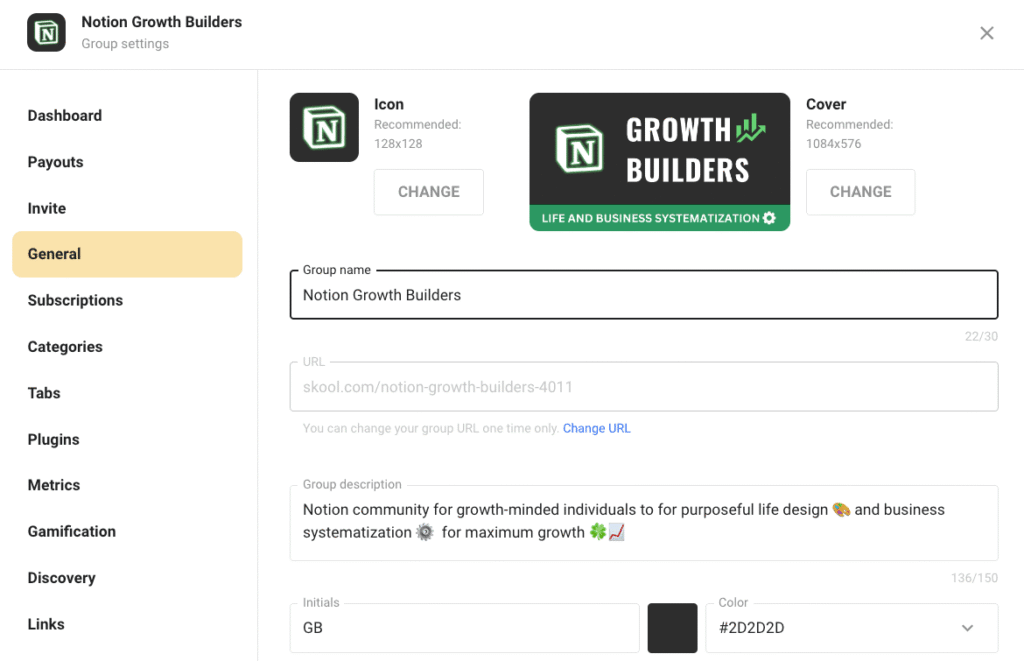
You can make minor changes like adding thumbnails and logos for personalization.
However, Skool lacks multiple theme choices and does not allow the use of custom CSS code to make your community distinct from others hosted on the platform.
Additionally, Skool does not support the custom domains feature, so all your communities will be hosted under Skool’s subdomain as www.skool.com/[community-name]/.
👍 Skool deliberately keeps design options simple to give users a familiar experience across different communities. Just like Facebook groups, this consistent design helps people feel comfortable navigating any Skool community they join.
Also for building landing pages, you may need an external platform like ThriveCart, Kajabi, or even Elementor with WordPress to have more control over checkout.
Nevertheless, you can’t fully expect landing page building functionalities in Skool, but it will provide enough flexibility to add your own branding and let the “Skool” as a brand do the heavy lifting for you.
But, fortunately, as of now, according to people’s experiences, the Skool community’s about page converts really well with cold Facebook ads.
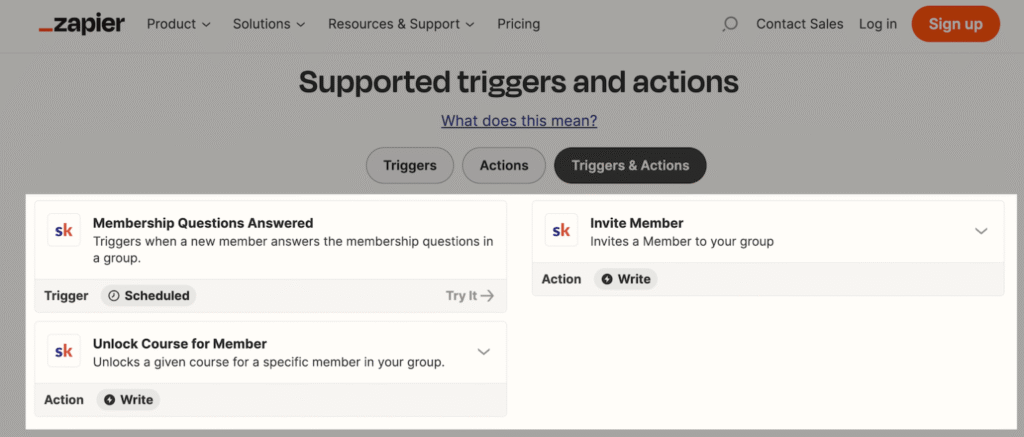
But they provide Zapier and Webhooks to integrate with 1000s of tools and services.
Here are some of the workflows you can create with Zapier + Skool.
- Ask for members’ emails (in membership questions) and directly add them to your CRM.
- Grant access to a member who bought a product on ThriveCart.
You may think that you rely on Zapier for everything, right?
But luckily Skool has webhooks support. 🙌
For example, if you use Thrivecart as your payment solution, its webhooks can automatically add students to Skool upon checkout, eliminating the need for Zapier.
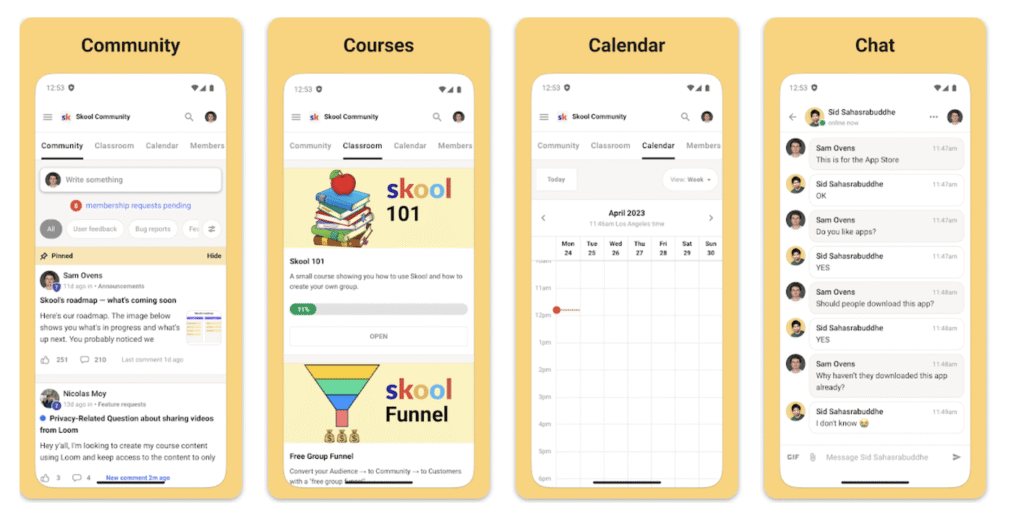
As I told you, Skool comes with apps for both iOS and Android. They are feature-rich!
The great thing about these apps is that they give you the ability to send push notifications to all your members, further increasing community engagement.
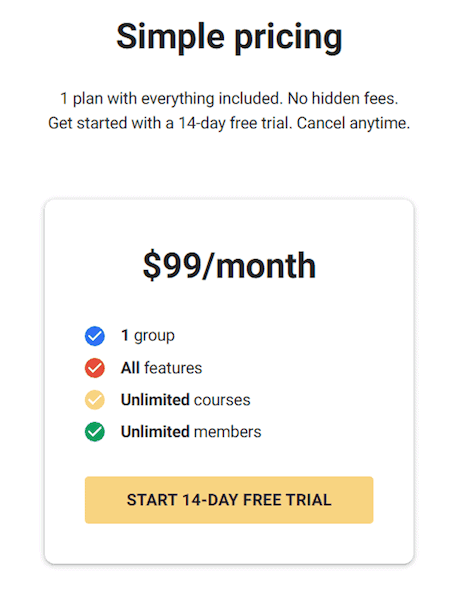
Skool’s pricing plans are straightforward and don’t limit the number of students in your community.
It’s highly unlikely that they’ll introduce tiered pricing.
👉 Here’s the good thing: Alex Hormozi, Skool’s primary stakeholder, stated in a YouTube video (I watched it months ago) that they are not focusing on maximizing profits using tiered pricing. Instead, they aim to disrupt the course creation and community market.
Ans when it comes to support, you can either email them or post in their public community.
- Who is behind Skool? Skool was founded by Sam Ovens, who also established and is the CEO of Consulting.com. This platform aids individuals in launching their consulting businesses.
- Who is Sam Ovens? Sam Ovens is an entrepreneur hailing from New Zealand. He founded Consulting.com and also SnapInspect.
- What is The Skool Games? School Games is a competition launched by Alex Hormozi, where you receive detailed guidance on how to build a profitable community. The top 10 participants are selected every month and they get a chance to spend a day with Alex in Las Vegas.
- Is Skool worth purchasing? Absolutely. Skool possesses excellent community features, particularly for gamification. All these features are accessible for just $99 per month. It’s certainly a worthwhile investment.
- Does Skool offer any trials? Yes, indeed. Skool provides a 14-day free trial, allowing you to experience the tool firsthand.